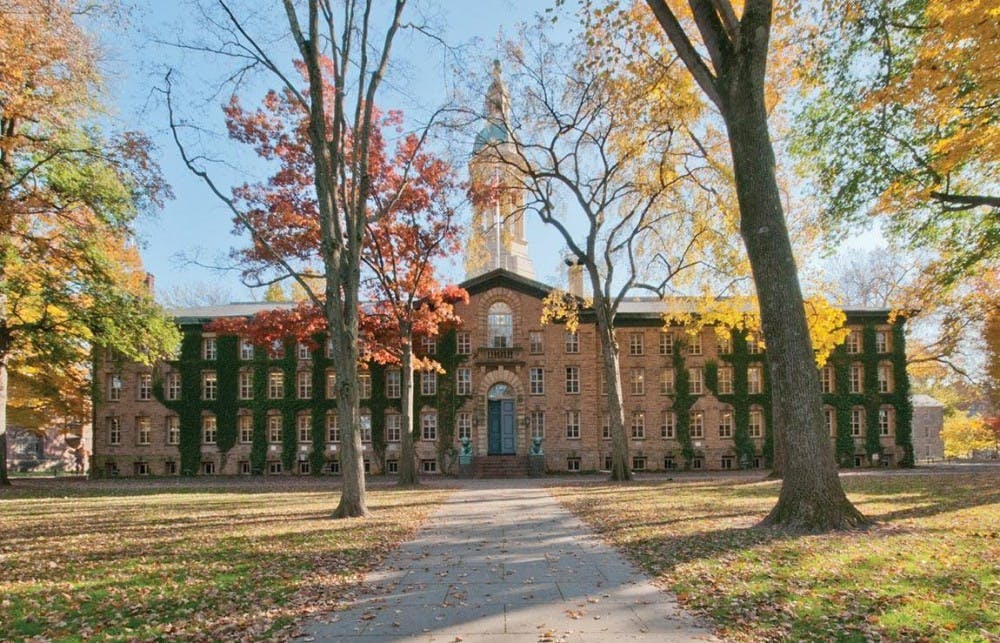I was not particularly surprised to hear that the University recently updated its policy regarding consensual relations between faculty and graduate students, though I was somewhat dismayed. The decision of the Office of the Dean of the Faculty to forbid all consensual relations between faculty (including instructors and lecturers) and graduate students — regardless of whether the employee and student in question have a supervisory or advisory relationship — is a step in the wrong direction. Certainly, the University is right to be diligent in its prohibition of romantic or sexual interaction between faculty members and their own graduate students.
Indeed, it has been, as evidenced by the 2018 dismissal of Sergio Verdú, a professor of electrical engineering accused of sexually harassing an advisee. While some take issue with the severity of the punishment, even the suggestion of interpersonal solicitation from a superior with tangible power over the object of his or her advances should be swiftly and resoundingly quashed.
The same should not be said, however, for instructors and graduate students whose only commonality is their University affiliation. The new guidelines read in part: “A sexual or romantic relationship between a faculty member and a person for whom he or she has professional responsibility (including, for example, as a teacher, adviser, evaluator, or supervisor) raises concerns such as conflict of interest, abuse of authority, and unfair treatment. […] Faculty members shall not initiate or engage in romantic or sexual behavior with undergraduate or graduate students,” including students in “other programs or courses of study.”
Obviously, I do not think that professors should be allowed to engage in relationships with undergraduates. Even though most students are above the age of consent, some are not, and that technicality notwithstanding, the nature of a liberal arts education brings professors and students from a wide range of disciplines into types of academic contact that cannot always be foreseen.
But what “professional responsibility” does a professor of math have to a graduate student in Slavics? By these guidelines, a 28-year-old art history lecturer couldn’t ask a seventh-year economics PhD candidate out to drinks. In liminal cases, drawing such conspicuous attention to differentials of power probably does more to entrench than to mitigate them. What good does that do, and for whom?
The only “good” it does is to absolve the University from any and all responsibility for the missteps of its constituents. With its policy panacea in place, all Princeton must do the next time two adults in its community have an awkward encounter is point to their most recent memo and try not to say: “Well, it was in the syllabus.”
The categorical prohibition of all relations between faculty and graduate students whose academic enterprises are unrelated is, at best, misguided. For example, doctors routinely marry their nurses, yet hospitals and their employees remain capable of caring for the ill; the nurse is simply moved to a different unit. But instructors and students in different departments already have the same institutional relationship that hospitals mandate for co-workers who date or marry.
In sum, the main effect of these guidelines is to preclude from ever arising any opportunity whereby students and professors alike might take responsibility for their decisions as adults with free will and learn how to navigate the inseparable complexities of an intertwined personal and professional life. An alarmist view might contend that this policy constitutes a real infringement upon the rights of consenting adults to sexual freedom.
In any case, such developments on Princeton’s campus are only an index of current political trends both on college campuses and in the body politic. At a time when social norms surrounding interpersonal behavior are under intense and sustained scrutiny, the University is not to blame for erring on the side of caution, but it might not want to do so by mollycoddling whatever angst is in vogue.
Owen Ayers is a senior in comparative literature from Henrico, Va. He can be reached at oayers@princeton.edu.









